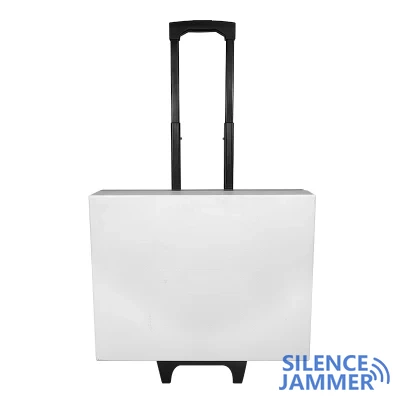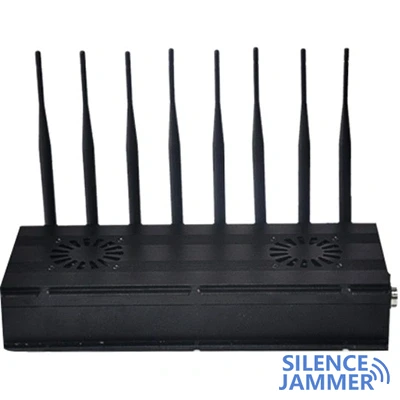From listening to music, making and receiving calls to participating in online meetings, wireless headphones provide us with great convenience. However, in certain specific occasions, such as examination venues, meeting rooms or confidential areas, the use of signal phone jammers has become increasingly common. This article will explore in depth the impact of signal phone jammers on wireless headphones.
Wireless headphones usually use Bluetooth technology for communication. Bluetooth is a short-range wireless technology that operates in the 2.4GHz ISM (Industrial, Scientific and Medical) band. Bluetooth uses frequency hopping spread spectrum technology to spread the signal over 79 different frequencies and jump between these frequencies at a rate of 1,600 times per second. This technology makes Bluetooth highly anti-interference and can work reliably in crowded wireless environments.
Impact of signal phone jammers on wireless headphones

Frequency band coverage: Traditional cell phone jammers usually target the frequency bands of cellular networks (such as 2G, 3G, 4G and 5G), but if the jammer covers the 2.4GHz band, it may interfere with the Bluetooth signal. This interference can cause wireless headphones to fail to connect normally or disconnect frequently.
Interference strength: The interference strength of the signal phone jammer will affect the performance of wireless headphones. If the jammer has a high power and a wide coverage, it may completely block the Bluetooth signal and make the wireless headset unusable. If the interference intensity is weak, it may only cause unstable connection, degraded sound quality or increased latency.

Frequency hopping technology: Bluetooth's frequency hopping technology gives it a certain anti-interference ability, but in a strong interference environment, this technology may not be able to completely resist interference. When the jammer transmits interference signals on all 79 frequencies at the same time, the performance of Bluetooth headsets will be seriously affected.
The impact of the signal phone jammer on wireless headsets depends on the frequency band coverage and interference intensity of the jammer. In most cases, the jammer may cause the wireless headset to not work properly.



